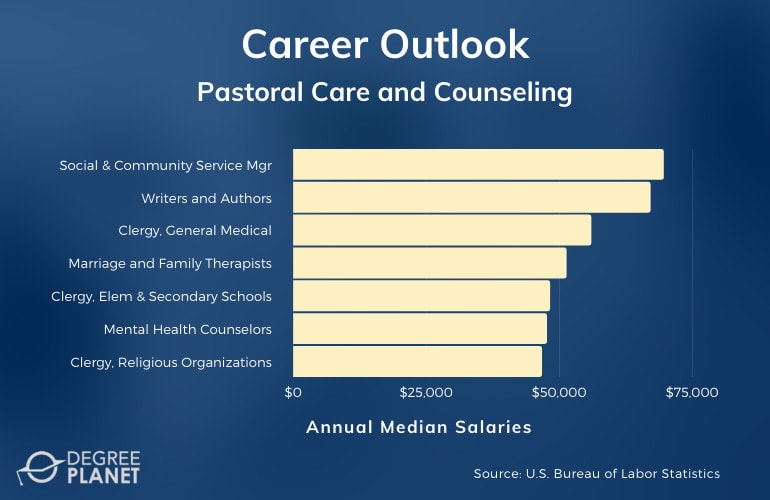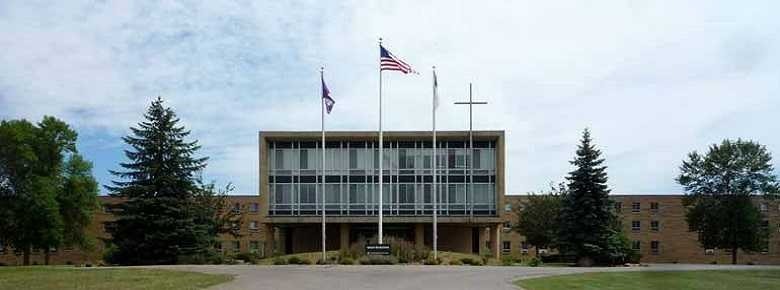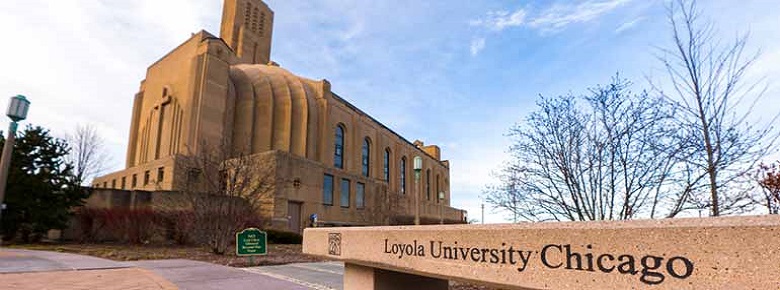An online pastoral counseling degree can help equip you to assist individuals, couples, and families with problems going on in their lives and relationships.

You can learn how to use Scripture and spiritual formation practices effectively within the context of a counseling session, and you can help others explore their faith to impact their lives.
Editorial Listing ShortCode:
If you have an interest in both pastoral ministry and mental health counseling, you might be a good fit for a masters in pastoral counseling online degree program. It may be worth noting that a number of universities also offer online masters in counseling no GRE required if you are interested in general mental health counseling.
Online Pastoral Counseling Degree Programs

Here are some subjects you might study while getting your pastoral education in counseling:
- Psychological theory
- Ethics
- Crisis care
- Substance abuse
- Marriage counseling
- Human services counseling
Even if most of your coursework can be completed online, an online degree program in biblical counseling may also have a few in-person requirements. You might be expected to complete an internship, though you can likely intern at a location near where you live.
Editorial Listing ShortCode:
Some programs ask you to come to campus for occasional seminars or intensives so you can have the benefits of live discussions and training with your teachers and classmates. In most states, the degree programs that have a licensure-track follow the same state requirements as for secular counseling degree programs. Not all degree programs in pastoral or biblical counseling are licensure-track programs, though.
Obtaining licensure as a licensed professional counselor or licensed marriage and family therapist involves completing a certain number of supervised clinical hours and passing an exam. Exact licensing requirements vary by state. Only a handful of states specifically license practitioners as pastoral counselors or have any sort of pastoral counseling certification.
Editorial Listing ShortCode:
Many pastoral counseling degree programs cater to members of the clergy. A non-licensure degree program could be useful for someone working in ministry who wants to improve their ability to help members of the congregation in their daily lives.
Common Pastoral Counseling Master’s Specializations

Many degree programs in pastoral counseling allow you to choose a specialization within the program. Here are some common specializations that may be available to you:
- Addictions and Recovery. This specialization could be useful if you would like to work in mental health counseling at a rehabilitation center for those recovering from addictions and substance abuse. You will study the physiology of addiction as well as how addiction can affect an individual’s mental health and personal relationships.
- Community Chaplaincy. In this specialization, you can study how to perform the work of a chaplain in non-religious settings, such as prisons, college campuses, hospitals, or the military.
- Crisis Response and Trauma. In this specialization, you can learn about how to provide support to those who are currently suffering acute stress or are going through various types of personal crises.
- Discipleship and Church Ministry. This specialization focuses on topics relevant to those employed in churches, such as church administration, small group ministries, family therapy, and children’s ministry.
- Leadership. In this specialization, you can learn about how to form a vision and mission for your church’s future and how to help yourself and other ministers avoid burnout.
What specializations are available in a pastoral counseling program can vary at different schools. Any of them could be useful for a career in ministry or related fields.
Pastoral Care and Counseling Careers & Salaries

A degree in pastoral counseling can be useful for pursuing careers in community and social service. Professionals with this type of degree often work as clergy, counselors, or other positions in which they provide guidance and assistance to others.
According to the Bureau of Labor Statistics, here are some occupations related to pastoral counseling, along with their median annual salaries.
| Careers | Annual Median Salaries |
| Social and Community Service Managers | $69,600 |
| Writers and Authors | $67,120 |
| Clergy, General Medical and Surgical Hospitals | $55,990 |
| Marriage and Family Therapists | $51,340 |
| Clergy, Elementary and Secondary Schools | $48,240 |
| Substance Abuse, Behavioral Disorder, and Mental Health Counselors | $47,660 |
| Clergy, Religious Organizations | $46,720 |
| Religious Activities and Education Directors | $45,110 |
| Social and Human Service Assistants | $35,960 |
| Religious Workers | $33,530 |
A degree in pastoral counseling can be applicable in a variety of careers that involve helping other people or your community as a whole. Community and social service occupations are in high demand, with job growth expected to increase 12% over the next ten years (Bureau of Labor Statistics).
MA in Pastoral Counseling Curriculum & Courses

Here are examples of courses you might take while earning a Master of Arts in Pastoral Counseling:
- Theory and Techniques of the Helping Relationship: You’ll study best practices in counseling and how to provide assistance while being respectful and professional.
- Human Growth and Development: You’ll study how thinking, behavior, and communication change as a person grows from an infant to an adult.
- Research Methods: You’ll study how clinical counseling research is conducted so that you can identify methodologically correct research and be able to rightly apply research findings to your own practice.
- Addictions and the Recovery Process: You’ll study how people are affected by addictions and how to help them recover.
- Evaluation and Diagnosis of Mental and Emotional Disorders: You’ll study different types of mental disorders and their diagnostic criteria.
- Foundations of Crisis and Trauma Counseling: You’ll study how to provide support, guidance, and crisis intervention to people who have experienced or are currently experiencing acute stress.
- Christian Approaches to Counseling: You’ll study how to appropriately use Bible study, prayer, and other spiritual formation practices within the context of a counseling session.
- Counseling Diverse Populations: You’ll study how to work with people from different cultures and ethnicities and how to identify implicit biases.
- Thanatology: You’ll study how to provide end of life counseling and how to counsel people who are grieving the death of a loved one. You’ll also explore different beliefs about death that exist both within Christianity and in other belief systems.
- Contemporary Moral Issues: You’ll study modern culture and different standards of right and wrong that exist within modern culture.
Exact course titles and requirements for a pastoral counseling program will vary at different universities.
How to Choose an Online Master’s in Pastoral Counseling Degree Program

Here are some factors you may want to consider when choosing an online master’s degree program in pastoral counseling:
- Licensure. Not all programs are licensure-track programs, and the ones that are may only meet the licensing requirements for a specific state. So, you may want to consider if there’s a specific type of license you want to earn and where you want to practice.
- In-person requirements. While there are many online degree programs that allow you to complete most of your coursework online, many online programs in pastoral counseling include internships, especially if they are licensure-track. Some programs may also have students make occasional visits to campus for intensives or seminars.
- Available specializations. You may want to choose a professional counseling program that offers a specialty you are particularly interested in, such as substance abuse recovery or marriage and family therapy.
There are many online options available, so it can be helpful to research and compare different programs to find the one that best suits your needs and preferences.
How to Become a Certified Pastoral Counselor

If you want to become a pastoral counselor, here are some steps you can take toward this goal:
- Earn a bachelor’s degree. It’s preferable to major in a field related to pastoral counseling, psychology, or ministry. For example, some universities offer both on-campus and online pastoral ministry degrees for students interested in this specialty.
- Earn a master’s degree in counseling. Many counseling programs meet their state’s licensure requirements for licensed professional counselors or licensed marriage and family therapists.
- Complete an internship. Most states require the completion of a certain number of supervised hours in a clinical setting to apply for professional counseling licensure.
- Pass state licensing exams as needed. States can vary in their exact licensing requirements.
- Take part in continuing education. Once you have earned your state license, it will need to be periodically renewed, which usually requires completing continuing education requirements. Continuing education can help ensure that you stay up-to-date on the most recent research on human services counseling techniques and best practices.
Once you are enrolled in a licensure-track master’s degree program, your university can help ensure that you are prepared to take state licensing exams and to meet the requirements of your particular state. In most states, religious counselors must meet the same licensing requirements as secular counselors. Only a few states specifically license pastoral counselors.
Master of Science in Pastoral Counseling Admissions Requirements

Here are some common admissions requirements for a pastoral counseling program:
- Bachelor’s degree from an accredited institution. Some programs prefer candidates to hold an undergraduate degree in a related field, such as psychology, religious studies, or human services.
- Minimum GPA. While the requested minimum grade point average can vary from school to school, the average minimum is often 2.75.
- Letters of recommendation. You might ask a leader in your church or a former professor to write a reference letter for you.
- Essay or personal statement. This is often your chance to explain your personal goals and reasons for applying to the program.
Admissions requirements can vary significantly at different schools. Some schools may also ask that you submit GRE scores, but a growing number of institutions are no longer requiring standardized test scores.
Pastoral Counseling Programs Accreditation

Regional accreditation is a process by which colleges and universities are reviewed by outside agencies to determine whether they meet certain standards.
Attending a regionally accredited degree program can often make it easier for you to access financial aid and opportunities for further education. In most states, holding a degree from an accredited institution is necessary to obtain licensure.
Editorial Listing ShortCode:
Most colleges and universities state on their website whether they are regionally accredited, and if so, by whom. You may want to find out about a school’s accreditation status before applying to any of their professional counseling degree programs.
To learn more about regional accreditation, you can visit the US Department of Education’s website.
Pastoral Counseling Licensure and Certifications

If you are considering a degree in pastoral counseling, or any other type of counseling, such as human services counseling, you might be interested in earning state licensure so you can work in clinical settings.
Two common counseling licenses include licensed professional counselor (LPC) and licensed marriage and family therapist (LMFT). You could also consider becoming licensed as a school guidance counselor, which could be useful if you want to become a guidance counselor at a Christian school.
The requirements to obtain any of these licenses vary by state. They usually involve spending 2 years working under the supervision of someone who is already licensed as well as passing a state licensing exam. In addition, you typically need to hold an accredited masters degree in your counseling specialty of choice.
Financial Aid and Scholarships

Higher education can come with a significant financial commitment. Luckily, there are many forms of financial aid available for students, including online graduate students, who qualify.
You may be able to qualify for federal or state aid, employer programs, and scholarships. Your university may offer scholarship opportunities, or there may be scholarships available from private organizations or local churches.
To apply for federal aid, you can start by filling out the Free Application for Federal Student Aid (FAFSA). Your FAFSA results can help determine your eligibility for a variety of need-based financial aid opportunities.
What Is Pastoral Counseling?

Pastoral counseling is a type of human services counseling that combines the use of mental health counseling knowledge and psychotherapy techniques with theological knowledge and spiritual formation practices.
Pastoral counselors work to holistically address people’s spiritual, mental, and relational needs. Pastoral counseling also emphasizes Christian values, such as truthfulness and forgiveness of others. These counselors ensure that people receive care that aligns with their spiritual beliefs. They may pray with clients and provide them with guidance and encouragement from Scripture.
What Can You Do with a Masters in Pastoral Counseling?
A masters in pastoral counseling can lead to a variety of positions in churches, parachurch organizations, and social and community service agencies. Pastoral counselors are often employed by churches, counseling centers, crisis intervention services, and Christian schools.
Professional counselors can also work as chaplains in a variety of secular settings, such as hospitals or the military. Chaplains are available to help those who cannot attend regular church services or other religious activities. If you are already a member of the clergy, a masters in pastoral counseling can add to your qualifications and credentials.
How Long Does It Take to Get a Masters in Pastoral Counseling Degree Online?

If a masters program consists of 36 credit hours of coursework, it may be completed in as little as 1 year with full-time enrollment, including summer enrollment. You may need more time to complete your program if it requires more credits or the completion of a thesis. It may also take longer to earn your masters if you choose to only take classes part-time.
Many pastoral counseling degree programs use a cohort model. In this model, everyone in the cohort takes the same classes each semester until graduation, which can help you stay on track and plan ahead for a specific graduation date.
What Jobs Can I Get with a Masters in Pastoral Counseling?
Some professionals with a masters in pastoral counseling work as social and community service managers, clergy, or marriage and family therapists.
Exactly what jobs you can get may vary depending on the curriculum and specialization of your pastoral counseling program. For instance, some programs prepare you to pursue state licensure as a counselor, while others do not. What jobs you can get can also depend on other factors, such as your prior work experience and geographic location.
Do Pastoral Counselors Need a License?

Licensure requirements for professional counselors vary by state. In a few select states, you can be licensed under the title of licensed pastoral counselor.
In most states, these professionals receive the same licenses and titles as secular counselors, and they meet the same requirements to obtain these licenses. Counselors must be licensed to practice in any sort of clinical setting. If you do not pursue licensure as a counselor, counseling knowledge could still be useful if you work in a position, like church minister, where you frequently interact with other people.
You cannot legally conduct counseling sessions or call yourself a certified counselor, though, without becoming licensed.
Are Pastoral Counselors Ordained Ministers?

Some pastoral counselors are ordained ministers, but it is not strictly necessary to be an ordained minister in order to become a pastoral counselor.
If you are interested in pastoral counseling but want a strong foundation in theology, you could also consider getting a Master of Divinity (MDiv) with a concentration in pastoral counseling. MDiv programs often qualify students to become ordained in their respective denominations. More and more universities and schools of divinity offer students the opportunity to earn a degree in theology online.
Pursuing either a Master of Arts in Pastoral Counseling or a Master of Divinity degree could advance your skills in using spirituality to counsel people on a personal level.
What’s the Difference Between a Masters in Christian Counseling vs. Pastoral Counseling?

Here are a few differences between Christian counseling and pastoral counseling:
- Masters in Pastoral Counseling: These programs tend to focus more on counseling practices as they would be used by pastors or others working in a church or religious setting.
- Masters in Christian Counseling: These programs tend to focus more on counseling and less on theology. They are basically regular counseling degree programs, but they’ll include a religious component since they exist at Christian colleges and universities.
There is a strong overlap in the subjects you will study in either a Christian counseling or pastoral counseling degree program. A pastoral counseling program will often have a stronger religious component, though.
Is a Masters Degree in Pastoral Counseling Worth It?

Yes, a masters degree in pastoral counseling is worth it for many students. The Bureau of Labor Statistics currently projects 12% job growth for community and social service occupations over the next decade, which is much faster than average.
Employment of marriage and family therapists is projected to grow by 16%, and employment of substance abuse, behavioral disorder, and mental health counseling is projected to grow by 23% over the same time period (Bureau of Labor Statistics).
Editorial Listing ShortCode:
Job opportunities aside, pastoral counseling is a rewarding career for many because it involves forming deep, personal connections with other people. Now could be a strategic time to advance your skill sets and qualifications in this in-demand field.
Universities Offering Online Masters in Pastoral Counseling Degree Programs
Methodology: The following school list is in alphabetical order. To be included, a college or university must be regionally accredited and offer degree programs online or in a hybrid format.

Biola University offers a Master of Arts in Christian Ministry and Leadership with a concentration in Pastoral Care and Counseling. To graduate, students must complete at least 49 semester hours with a GPA of 3.0 or higher. To be eligible, applicants must have a Bachelor of Arts with a minimum GPA of 3.0 and submit a personal statement.
Biola University is accredited by the WASC Senior College and University Commission.

Bob Jones University offers a Master of Arts in Biblical Counseling. Students must complete at least 33 credit hours to graduate. Each class can be taken online and is 7 weeks long. Those interested in the program may apply online through the school’s website with copies of their official transcripts.
Bob Jones University is accredited by the Southern Association of Colleges and Schools Commission on Colleges.

Crown College offers a Master of Arts in Pastoral Counseling. To graduate, students must complete 36 credit hours. All classes may be taken online and are 8 weeks long. Those interested in the program may apply online with official transcripts from all postsecondary schools attended.
Crown College is accredited by the Higher Learning Commission.

Dallas Baptist University offers a Master of Arts in Christian Counseling. The program requires students to complete 36 credit hours to graduate. All classes can be taken online. A portfolio may be created by the student through the school’s online blackboard. Applicants must submit official transcripts, two letters of recommendation, and a personal statement.
Dallas Baptist University is accredited by the Southern Association of Colleges and Schools Commission on Colleges.

Dallas Theological Seminary offers a Master of Arts in Biblical Counseling. The program allows students to complete 42 credit hours online. To graduate, students must obtain 90 credit hours. To be eligible for the program, applicants must have a bachelor’s degree and demonstrate dedication to the faith.
Dallas Theological Seminary is accredited by the Southern Association of Colleges and Schools Commission on Colleges.

Denver Seminary offers a Master of Divinity in Pastoral Care and Counseling. The program is designed to last for 3 years and requires students to complete 39 credit hours to graduate. Applicants must have a GPA of 3.0 or higher, complete a personal questionnaire, and submit two references and official transcripts.
Denver Seminary is accredited by the Higher Learning Commission.

Freed-Hardeman University offers an online program for a Master of Arts in Pastoral Care and Counseling. Students must complete 42 credit hours and a six-hour internship to graduate. Those interested in the program may apply online. To be eligible, they must have a minimum GPA of 3.0 and submit a personal statement and three references.
Freed-Hardeman University is accredited by the Southern Association of Colleges and Schools Commission on Colleges.

Fordham University offers an online program for a Master of Arts in Pastoral Care. To graduate, students must complete 36 credit hours and a final paper. A mentorship program is offered to interested students. Applicants must submit a personal statement, two letters of recommendation, official transcripts, and a current resume.
Fordham University is accredited by the Higher Learning Commission of the Middle States Association.

Garrett-Evangelical Theological Seminary offers a Master of Arts in Pastoral Care and Counseling. Students may take the Clinical track, which requires 65 credit hours, or the Chaplaincy and Spiritual Care track, which requires 49 credit hours. Applicants must have a bachelor’s degree with a GPA of 2.5 or higher.
Garrett–Evangelical Theological Seminary is accredited by the Higher Learning Commission.

The Holy Apostles College and Seminary offers a Master of Arts in Pastoral Studies with the option to add a concentration in Pastoral Counseling. The online program requires students to complete 36 credit hours with a minimum GPA of 3.0 to graduate. Applicants must submit official transcripts with two letters of recommendation and a personal essay.
Holy Apostles College and Seminary is accredited by the Commission on Institutions of Higher Education of the New England Commission of Higher Education, Inc.

Liberty University offers a Master of Arts in Pastoral Counseling. Students must complete 36 credit hours to graduate. All classes are 8 weeks long and offered online. There are 14 different concentrations that may be added to the program, such as Theology and Addictions and Recovery. Applicants must have a bachelor’s degree with a minimum GPA of 2.0.
Liberty also offer an online youth ministry degree for students interested in this specialty.
Liberty University is accredited by the Southern Association of Colleges and Schools Commission on Colleges.

Loyola University—Chicago offers a Master of Arts in Pastoral Counseling. Students must complete 60 credit hours and a final project over the course of 3 years to graduate. Applicants must submit official transcripts, two letters of recommendation, and a statement of purpose when applying.
Loyola University – Chicago is accredited by the Higher Learning Commission.

Luther Rice College and Seminary offers a Master of Arts in Biblical Counseling. Students must complete 36 credit hours, including a practicum, to graduate. All classes can be taken online. Those interested in the program must submit an online application with copies of their official transcripts and a Christian character reference and complete a test on bible content.
Luther Rice College and Seminary is accredited by the Southern Association of Colleges and Schools Commission on Colleges.

Maranatha Baptist University offers a Master’s in Biblical Counseling. To graduate, students must complete 33 credit hours with a GPA of 3.0 or higher. Each class can be taken online and is 8 weeks long. Applicants must apply online through the school’s website with official transcripts and references.
Maranatha Baptist University is accredited by the Higher Learning Commission.

Midwestern Baptist Theological Seminary offers a Master of Divinity with a concentration in Biblical Counseling. To graduate, students must complete 90 credit hours, including 18 credit hours dedicated to the concentration. Those interested in the program may apply online through the school’s website with official transcripts and references.
Midwestern Baptist Theological Seminary is accredited by the Higher Learning Commission.

Ohio Christian University offers a Master of Arts in Ministry with a concentration in Pastoral Counseling. The program can be completed online, and classes are 5 weeks long. To graduate, students must complete 36 credit hours. Applicants must submit official transcripts, a ministry reference, and a statement of faith when applying.
Ohio Christian University is accredited by the Higher Learning Commission.

Regent University offers a Master of Arts in Pastoral Counseling. The online program requires students to complete 30 credit hours to graduate. Those interested in the program must submit an online application with copies of their transcripts and government-issued ID and complete a personal questionnaire.
Regent University is accredited by the Southern Association of Colleges and Schools Commission on Colleges.

Southeastern University offers a Master of Science in Pastoral Care and Counseling. Students must complete 36 credit hours to graduate. To be eligible for the program, applicants must have a bachelor’s degree with a GPA of 3.0 and submit a professional or academic reference, a Christian reference, and an admissions essay.
Southeastern University is accredited by the Southern Association of Colleges and Schools Commission on Colleges.

The Southern Baptist Theological Seminary offers a Master of Divinity in Biblical Counseling. While all classes can be completed online, counseling observations are required to be done in person. Those interested in the program may apply online with a Christian character reference and official transcripts.
The Southern Baptist Theological Seminary is accredited by the Southern Association of Colleges and Schools Commission on Colleges.

Westminster Theological Seminary offers an online program for a Master of Arts in Counseling. It requires students to complete 63 credit hours to graduate. A ministry practicum may also be completed. Those interested in the program are encouraged to contact one of the school’s admissions counselors prior to applying.
Westminster Theological Seminary is accredited by the Middle States Commission on Higher Education.
Getting Your Masters in Pastoral Counseling Online

Pursuing a degree in pastoral counseling can enable you to combine your interest in theology and biblical studies with a passion for directly helping others. If you care about spiritual and mental health, are a good listener, and have a heart for others, a pastoral counseling program might be a good fit for you.
An online degree program can often make it easier for you to earn your professional counseling degree by offering more convenient or flexible schedule options. Many online programs still allow for plenty of interaction between students and their instructors by including online discussions and activities. Plus, programs offered at online Christian colleges may allow you to collaborate with other students with similar interests and goals.
You can start your journey toward your masters in pastoral counseling today by exploring accredited universities.

